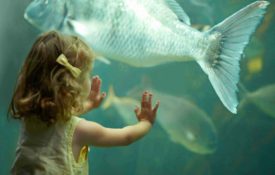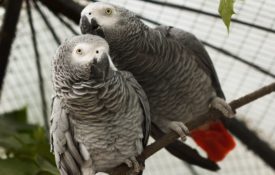
APS President Alison Gopnik writes that the contrast between the reasoning of creative 4-year-olds and predictable artificial intelligence may be a key to understanding how human intelligence works.

Amy Belfi, an assistant professor at Missouri S&T, discusses her research into the impact that audio and music have on the brain—and looking forward to learning more, getting tenure, and playing the upcoming Nintendo Zelda game.

The role of exploration and risk taking in sustaining adolescent well-being and establishing social connectivity is the topic of a recent article published in Psychological Science. In this podcast, you’ll hear from the two authors: Natalie Saragosa-Harris and Catherine Hartley.

Amy Belfi from the Missouri University of Science and Technology joined APS’s Ludmila Nunes to speak about her career as a neuroscientist studying music perception and cognition as well as how poetry and other forms of art can impact the brain and behavior.

Artists are haunted by the specter of creative burnout, but research suggests that the best way to overcome barriers to creativity may be to accept them as part of the process.

Irene Pepperberg pioneered the study of bird cognition back in the 70s and still studies the cognitive and communicative abilities of grey parrots. In this conversation with APS’s Ludmila Nunes, she speaks about research on parrots’ cognitive abilities, their conservation and preservation in the wild, and much more.

It’s much harder to share the science with younger children than adolescents and teenagers, whose brains can handle more detailed and complex ideas. But, although the youngest audiences may not be receptive to research, they can be reached in various other ways.

The strategies children use to search for rewards in their environment could be used to create more sophisticated forms of artificial intelligence.

New research suggests that a strong sense of curiosity may be one personality trait that can enhance people’s creative problem-solving abilities.

Science Explores How Life's Marvels Elevate Cognition and Emotion

Adults are good at remembering information they are told to focus on, while young children tend to pay attention to all the information presented, even when they were told to focus on one particular item.

Leonardo da Vinci's creative approach made use of general psychological processes common to every human being.
